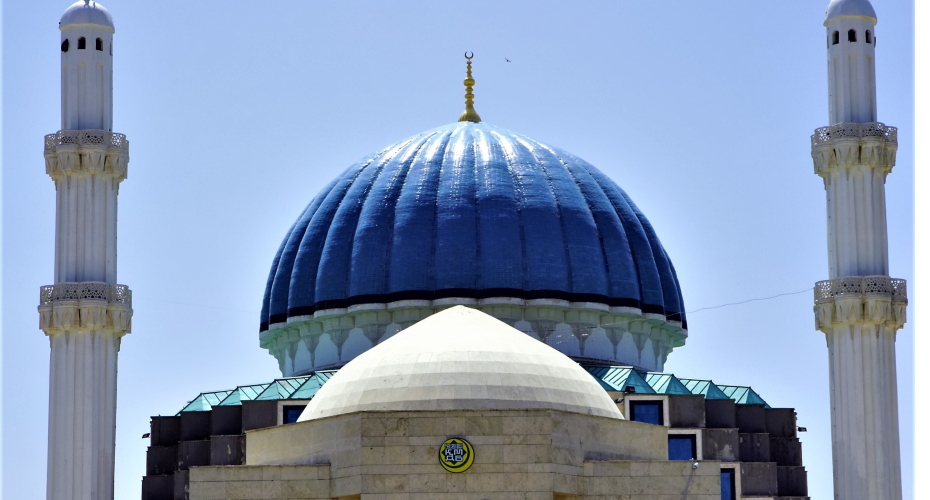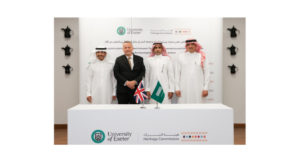UK has been a “leading enabler” of corrupt elites in Central Asia, new report warns

MPs have been guided by University of Exeter expertise as they call for the UK to improve its “persistently inadequate” engagement with Central Asian governments
The UK’s failure to stem flows of illicit money through financial systems means the country has been a leading enabler for corrupt Central Asian elites, a new report warns.
MPs have been guided by University of Exeter expertise as they call for the UK to improve its “persistently inadequate” engagement with Central Asian governments.
Professor John Heathershaw’s evidence to the Foreign Affairs Committee showed how the proceeds of kleptocracy continue their journey after leaving Central Asia. The committee draws upon this evidence in their new report: “Countries at crossroads: UK engagement in Central Asia”.
The report points to Professor Heathershaw’s research on how “downstream types of corruption” leads to assets being purchased and bank accounts being held in the UK.
While calling for high-level, consistent diplomatic engagement with Central Asian countries, the report emphasises the importance of non-state actors. It demands that the government increase its enforcement powers to ensure that the UK financial services cannot be used as a conduit for illicit finance flows from the region.
The report also highlights the role of cultural and educational institutions, calling out the damage caused by cuts to the BBC World Service and demanding the government increase the number of Chevening scholarships available for Central Asians to study in the UK.
Professor Heathershaw’s evidence was submitted jointly with Alexander Cooley of Barnard College and supported by his work with Professor David Lewis and Tom Mayne from the University of Exeter.
The researchers warned the UK has been a key node for the “flight” of capital from Central Asian countries and a leading enabler of its corrupt elites. The report says the UK therefore bears some responsibility for the continuation of corruption and kleptocracy by Central Asia.
Professor Heathershaw’s evidence said the problem is not legislation and regulation, which have progressed in recent years, but in enforcement. The report describes how an “underenforced financial crime prosecution system in the UK constitutes an undeclared interference in the form of facilitation of kleptocratic autocracies”. It calls on Government to increase resources available to law enforcement authorities, including the National Crime Agency and the Serious Fraud Office.
It also urges the National Crime Agency to send agents to liaise with Central Asian governments on developing cooperation on Unexplained Wealth Orders (UWO) and on returning stolen public assets from the UK.
The report says: “By its failure to stem flows of illicit finance through the UK’s financial system, the Government is complicit in the plundering of Central Asian economies by their elites. Solving this problem will require the political will and resources to take legal action against those involved, as well as capacity building for officials in Central Asia to tackle the issue at source.”
Professor Heathershaw said: “This is a strong report which is especially hard-hitting on the kleptocracy problem. It rightly draws attention to non-traditional issues and shines a light on little-known problems such as the terrible oppression of the people of the Pamirs by the dictatorship in Tajikistan.
“As the report itself acknowledges, British financial and legal services have bought the kleptocracy problem to the UK. The BBC was a major source of free media in the region but has been harmed by government cuts. The Chevening scholarships to study in UK universities should be expanded, as the report argues.
“The weakness of the report is that it’s too focused on geopolitics – where UK has almost-zero power – and not on business and culture where UK-based non-state actors have huge global significance.
“It is not realistic to form a Central Asia5+UK forum at anything other than a junior level. Such a forum would be largely performative and achieve little. The UK is simply not at the level of the US, EU, Russia, and China who have similar forums with Central Asian states. The reason that France and Germany have far greater diplomatic engagement with Central Asia is not just a matter of choice but of their membership of the EU.
“The power of ‘Global Britain’ is its non-state actors – in business and culture – not its shrunken aid budget, its relatively small armed forces, its beleaguered diplomatic service, and the diminished global position of the UK state following Brexit. British business and culture can either worsen or improve corruption and human rights violations in Central Asia when they engage in the region. It is the business of foreign policy of a middle power such as the UK to ensure that British institutions make things better not worse. They can do so, for example, by increasing scholarships to the UK and enforcing economic crime laws – as the report recommends.”



